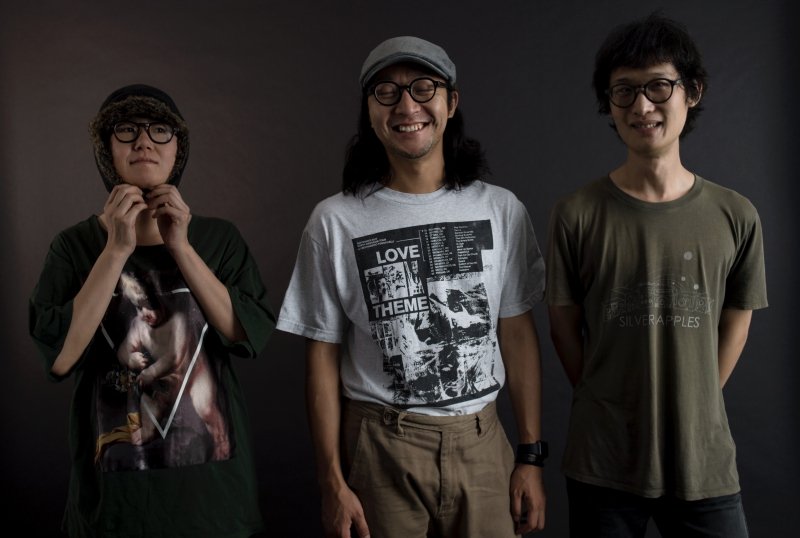As one might expect at a place the size of Microsoft, there are a lot of meetings. (After all, this company did introduce NetMeeting nearly a quarter century ago this month.) One on ones, stand ups, catch ups, sprints, all hands — a lot of iterations to have a little face time.
Only these days, face time is mostly mediated through screens — in record numbers. Microsoft News is a culture well used to conference calls and impromptu huddles, but even the more hardened extroverts are experiencing the fatigue of just one more virtual “touch base.”
So when more than 200 people from around the world clicked their Teams conference link to join the biweekly Ask Me Anything — a polite division-wide free-for-all — nobody expected something out of the ordinary. Certainly nobody expected anything transformative.
Yet before any agenda or deep dives or check-ins, attendees were transfixed watching two people share a beautiful song, at a time when simple gestures can resonate as strongly as orchestral maneuvers.

Senior program managers Xi Chen (keyboard) and Smita Shukla (vocals) have each put in about a dozen years at Microsoft. They only got to know each other last year and discovered common musical interests: Trained in Indian classical music since she was five, Shukla and her sister followed in their parents’ musical footsteps to form the on-again, off-again Kiing. Chen, in addition to solo projects, still records with the influential indie rock band Snapline, which he and two friends founded in their days at the Beijing Institute of Technology and Tsinghua University .
The two talked of bringing their bands together for an event, but the joint performance didn’t happen. A different opportunity for collaboration arose after Shukla moved to a new team, one that Chen happened to be on. In fact, the team had doubled in number, so there was a lot of getting to know one another at the introductory meeting.

“We were all sharing a little something about ourselves,” Shukla recalls. “I talked about my musical background, Xi talked about his.” The next thing they knew, their new manager Natalie Mao was asking if they would put together a bit of a talent show for the next Q&A. When you have a new manager making a request, the natural response is yes.
“I thought it would be a great idea to have a talent show from them to lift our spirit as a newly formed product management team,” explained Natalie, Mao, director of product management at Microsoft News. “I was thinking to do it after COVID-19, but why shall we wait till COVID-19 recedes? We are longing for bonding and supporting each other more than ever during this unprecedented time.”
Normally Chen and Shukla sit one flight apart — or, they used to, before the stay-at-home orders. Since snatching practice time in a conference room or a garage isn’t recommended, they turned to an app called Acapella to collaborate. All they needed was the music.
“We both wanted the song to be uplifting, so that everyone knows that even during a quarantine, we are all in this together,” Shukla explains. It didn’t take long for them to choose the transcendent R&B number.

Shukla recorded a 30-second video clip so Chen could understand her pitch and cadence. “After I got her demo take, I recorded some beats and made a couple of keyboard/synth tracks,” he explained. “She has a great voice, so she would make whatever I made sound good.”
These days, the notion of physical proximity can be unnerving. But watching Shukla and Chen perform in perfect harmony reminded people at that meeting that supporting one another doesn’t depend upon being in the same space. After all, Microsoft News operates in 180 countries: Its farflung teams — partnering with the publishers who delve into and deliver the news and information to their communities — have always been thousands of miles apart, much less six feet.
Not to say the challenges and uncertainty aren’t there, trying to imagine what the future will bring while still trying wrestle the day to day. “Inevitably, the line between work and life is blurry when we have full-time remote work and meetings,” Chen says. “I’m getting used to dialing into meetings while trying to quickly make food for the kids at the same time. We have great people at Microsoft who can well adjust to this new norm and also share empathy with each other in this situation.”
Both of them have been buoyed with the response from co-workers they’ve known for years and newer teammates who feel a little more connected thanks to this shared experience. They also understand how remote musical collaborations have brought bring people together, which Shukla says “is especially heartwarming in this isolating time.”
Mao agrees. “It’s important for us to bring a new team and new large organization together with humanity and empathy during all those changes at both work and life. Music can help us connect, cooperate, and care for each other.”
If one believes in a mission, to have a clear-eyed view to empower every person and every organization on the planet to do more, that carries one far. But it can help to take a moment in seeming chaos to reassure one another that in troubled times, everyone stands together.




